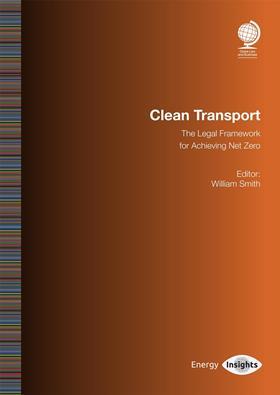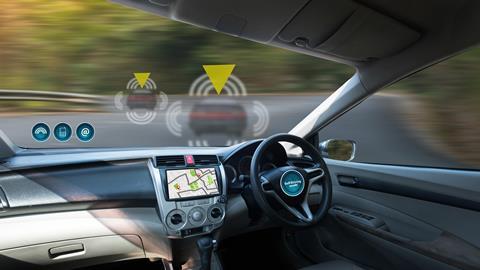Clean Transport: The Legal Framework for Achieving Net Zero
Edited by William Smith
£125, Globe Law and Business
★★★★★
As Clean Transport points out in an early chapter, according to the International Energy Agency transport was responsible for 24% of direct CO2 emissions from fuel combustion in 2019. It should therefore be blindingly obvious that the UK’s goal of achieving net zero by 2050 is a pipe dream unless the transport sector is decarbonised.
The book commences with a helpful overview of the international framework of climate treaties, and the UK’s overarching legislation and transport policies to deliver its commitments. It then takes the reader through specific strategies and solutions for decarbonising a comprehensive range of means of transport, including rail, road vehicles, shipping and aircraft. While the main focus is the UK, there is plenty of commentary on global policy developments.
Innovation lies at the heart of decarbonisation and Clean Transport explains the technological developments that need to be introduced. The chapters on payment mechanisms for public transport and connected autonomous vehicles (CAVs) stand out for their clear and accessible explanations of the issues and solutions. I found the discussion of how CAVs may contribute towards minimal or no greenhouse gas emissions particularly interesting.

While the book is detailed, one never feels bogged down in minutiae. Of course, it captures a snapshot of the position within the sector at a point in time. One suspects, given the election of a Labour government, that further developments in the field of sustainable transport may be coming. Readers will have to refer to government department websites and sector publications to check for the very latest position.
Indeed, in the October budget, the chancellor committed to further investment in decarbonising transport. For example, there is a promise of over £200m during 2025/26 to accelerate the rollout of electric vehicle charging infrastructure. There is also £120m to support both the purchase of new electric vans through the plug-in vehicle grant and the manufacture of wheelchair-accessible electric vehicles.
Nevertheless, Clean Transport is an excellent resource for anyone researching how the transport sector is responding to the challenge of climate change.
Rob Biddlecombe is a partner and head of the environmental practice at Mills & Reeve LLP
































No comments yet